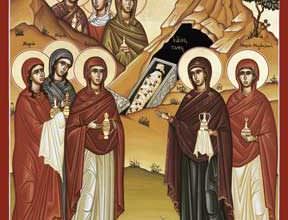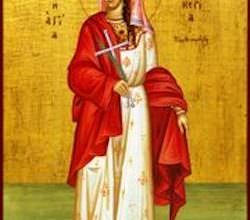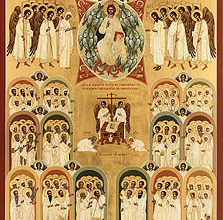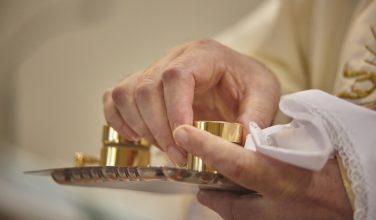Overview of the Seven Sacraments
Comments Off on Overview of the Seven Sacraments
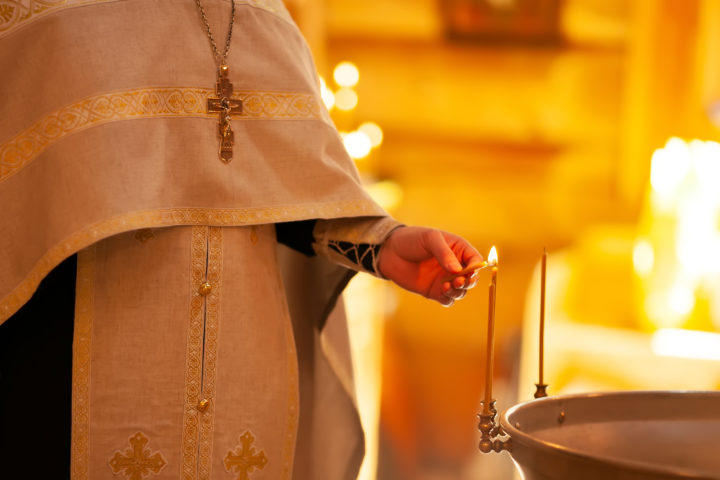 The Seven Sacraments, also referred to as the Holy Mysteries, are a mystical way for Orthodox Christians to participate in divine grace. Each of the sacraments have a real element – the part of the sacrament the we can experience with our five senses. However, there is another aspect of the sacraments that have a special, unseen quality and is considered to be a mystery.
The Seven Sacraments, also referred to as the Holy Mysteries, are a mystical way for Orthodox Christians to participate in divine grace. Each of the sacraments have a real element – the part of the sacrament the we can experience with our five senses. However, there is another aspect of the sacraments that have a special, unseen quality and is considered to be a mystery.
It is well understood that the goal of any Orthodox Christian is to become as close to perfect as we can, and we use Jesus Christ as our model of what perfection really is. In the Orthodox Church, sacraments exist as ways to help us achieve this perfection.
For example, in the Sacrament of Confession, we are called to confess our sins so that we can be repent and be forgiven. The sacraments also give us a way to participate in the faith on a regular basis. They are an integral part of the regular life of a Greek Orthodox Christian.
Some sacraments, such as chrismation and baptism, are only performed once. Others are considered essential, such as baptism, chrismation, confession, and communion. The sacraments of marriage and Holy Orders are not essential. Here is an overview of what the Seven Sacraments are.
Baptism
Baptism is typically performed on an infant and is done only ones. In it, the infant is submerged in water. Its purpose is to purify and wash away the stain of original sin in the holy water. If the individual is older, it also washes away any sins committed prior to baptism. Once baptized, the individual has a new life as a Christian.
Chrismation
This is performed at the Christening after baptism. In it, the child is anointed with oil known as “miron” which has been blessed by the Ecumenical Patriarch. Through it, the individual is given the gifts of the Holy Spirit. During Chrismation, three locks of hair are taken, which signify the individual’s thankfulness and gratitude for receiving the gift of the Holy Spirit.
Communion
Communion is first given at the Christening. After that, we are able to take it whenever we are able. Holy Communion was given to us by Jesus at the Lord’s Supper and is a gift at every Divine Liturgy service. The wine and bread that are given to us to mystically become the body and blood of Christ.
Marriage
Marriage is one of those sacraments that are completely optional. Through it, man and woman are joined in a sacred union where they commit their lives, and their children’s lives, to God.
Confession
Confession is an important part of the Orthodox faith because sin creates a barrier between God and us. In confessing our sins, we close that barrier and commit to a life where we are always striving to be like Christ. Since he was perfect and we aren’t, regular confession is a necessity so that we can get closer to God.
Holy Unction
As Orthodox Christians, we believe that God has the power to heal us. With Holy Unction, the Holy Spirit is asked to bless the olive oil. Individuals are anointed with the oil to help heal their minds and bodies of any sicknesses with which they may be struggling. It’s usually done during the Wednesday of Holy Week.
Holy Orders
Holy Orders occur when someone is entering the Orthodox clergy. Though is a sacrament, it isn’t a requirement. To enter into the clergy is to serve God, which is a divine calling. The clergy, however, is only a profession for men. Women can serve the church in other ways.
Do you have questions about any of these sacraments, or do you need help understanding what a sacrament is in general? Please consider asking your priest or other clergy member for more information.
Source:
The Religion section on GreekBoston.com was written by Greeks to help people understand some of the traditions of the Orthodox Christian religion, which is a religion practiced by people in countries such as Greece, Russia, United States, and other nations throughout the world. This article is not a substitute for information found in the Holy Bible or by our church fathers, priests, and other clergy members.
Categorized in: Greek Orthodox Religious Information
This post was written by Greek Boston
Share this Article:


